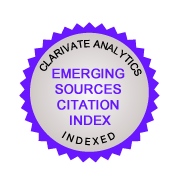STUDENTS’ CONCEPTUAL UNDERSTANDING AND SCIENCE PROCESS SKILLS IN AN INQUIRY-BASED FLIPPED CLASSROOM ENVIRONMENT
DOI:
https://doi.org/10.32890/mjli2020.17.1.7Keywords:
Flipped classroom, conceptual understanding, science process skillsAbstract
Purpose: The purpose of this study is to determine the impact of an Inquiry-based Flipped classroom model on the conceptual understanding and science process skills of junior high school students in the Philippines.
Method: A two-group pretest/post-test design was conducted on 55 Grade 9 students for the study. One group received instruction using the flipped classroom format while the other group serving as control was taught in the conventional format. A Conceptual Understanding Test (CUT) and a Science Process Skills Test (SPST) were used to measure the impact of instruction on the two groups. Independent samples t-test was used to determine if there was a significant difference between the groups while paired samples t-test was conducted on both groups to determine if the groups improved significantly after a 7-week intervention. Linear regression was performed to determine if science process skills was a positive predictor of conceptual understanding.
Findings: Inquiry-based flipped classroom did not make students perform better than the non-flipped inquiry-based learning environment in the Conceptual Understanding Test (CUT) and Science Process Skills Test (SPST) except on one biology topic (non-Mendelian Genetics) where the Flipped Inquiry Group scored significantly higher than the control in the CUT. Students’ science process skills positively predicted their conceptual understanding in biology.
Significance: Inquiry–based flipped classroom can be as effective as the non-flipped inquiry-based instruction in improving students’ conceptual understanding and science process skills but can be made even more effective depending on the content, the manner the content is uploaded and the choice of LMS for uploading the online content. The study also showed the importance of science process skills in enhancing students’ conceptual understanding in biology.




























